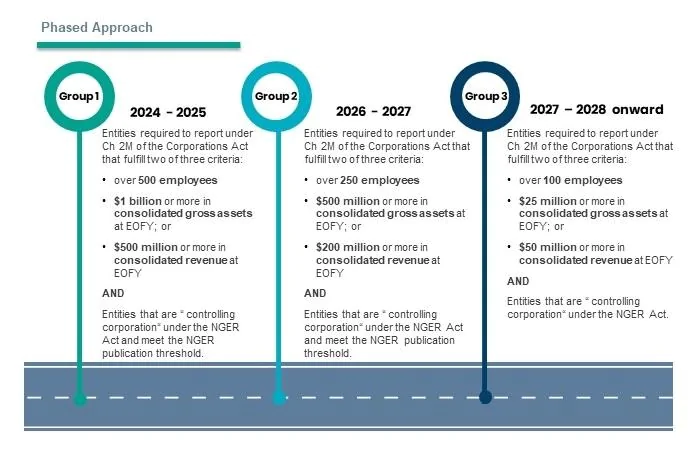
4 Risks Energy & Utilities Companies Should Consider This 2024
Australia's great energy transition—from fossil fuels to renewables—is not going well. Governments have lost faith in the market’s ability to deliver enough electricity to the right places at the right time. Consumers are fuming about high power prices, and investors are spooked by frequent and unpredictable government interventions.
This situation highlights the critical importance of risk management in the Energy and Utilities (E&U) sector. For businesses, managing these risks is essential to avoid severe financial losses and operational disruptions. As a Salesforce Implementation Partner, ProQuest Consulting is committed to helping our clients anticipate these challenges and leverage advanced tools to secure their future.
ProQuest Consulting is a Salesforce Summit Partner that works with energy and utility organisations to improve customer service, field operations, and data visibility using Salesforce.
We are not an energy or utilities provider. Instead, we support energy and utility companies by implementing Salesforce platforms that help address operational, regulatory, and customer experience risks.
Here are the top risks and considerations for 2024:
1. Cybersecurity Threats & Data Breaches: Protecting Critical Customer Data
In Australia, the average cost of a data breach was AUD $4.03 million in 2023. Successful attacks can disrupt operations, steal sensitive data, and cause massive financial losses.
One notable ransomware attack in 2021 on Colonial Pipeline, a major oil and gas company in Texas, forced a shutdown of operations for several days, leading to widespread fuel shortages and economic disruption. The hack was deemed a national security threat, causing US President Joe Biden to declare a state of emergency. The company had to pay a USD $5 million ransom, but the total financial impact extended far beyond this, collectively amounting to hundreds of millions of dollars.
Colonial Pipeline Ransomware Attack Timeline

The E&U sector is particularly vulnerable to cyberattacks due to its critical infrastructure role, reliance on complex and interconnected systems, and the usage of outdated legacy technologies. These create numerous entry points for attackers, and disruptions can have severe consequences, making the sector an attractive target for cybercriminals. Implementing robust cybersecurity measures is crucial in this industry.
2. Missing the Net Zero Deadline: Government Regulations and Corporate Responsibility
The Australian government’s commitment to Net Zero emissions by 2050 has resulted in stricter regulations and reforms from the Energy Security Board (ESB) for E&U companies, requiring a shift to renewable energy and enhanced reliability. These changes, combined with growing demand for more sustainable energy options from both consumers and businesses, mean E&U companies must make significant investments and operational adjustments.
Australia is moving towards mandatory and standardised climate reporting, with the Australian Treasury and the Australian Accounting Standards Board (AASB) releasing papers and drafts that align with international standards. The proposed standards will be mandatory and comprehensive, affecting many companies and requiring detailed reporting on Scope 1, 2, and 3 emissions, materiality, scenario analysis, and assurance readiness.
Companies need to quickly understand these requirements and develop the necessary methodologies, tools, and processes for climate-related disclosures, which will involve significant effort to gather data and establish supporting structures for independent assurance.

E&U companies must start their sustainability efforts now to comply with new regulations and stay competitive. Teaming up with a strategic partner can accelerate their path to net zero success.
3. Failing to Comply with the Australian Energy & Utilities Regulatory Maze
There’s only one word that comes to mind when you say compliance- complexity. Navigating new and existing Australian regulations is becoming increasingly intricate and costly for E&U companies. Meanwhile, non-compliance can result in hefty fines and reputational damage. What a pain!
$1.5 million
highest penalty imposed by a court for a breach of the National Energy Retail Law before 2021.
$17 million
the largest penalty imposed for a breach of the National Energy Retail Law and Rules.
In June 2022, the Federal Court handed this penalty to Origin Energy due to its failure to comply with its obligations to protect customers experiencing hardship and payment difficulties.
$39 million
total amount of issued infringement notices and penalties in the past two financial years alone, a shocking increase from penalties of just over $3.5 million across the 14 preceding financial years.
Companies cannot afford to wait until it’s too late! Regulatory breaches and penalties can severely damage a company’s reputation, potentially leading to loss of customer trust and investor confidence.
They need to start laying down the groundwork, investing in reporting systems, legal expertise, and operational adjustments to meet stringent requirements as early as possible while staying updated on changes and ensuring compliance strategies are up-to-date.
4. Stagnation in Innovation
The Energy & Utilities sector in Australia is highly volatile. In July and August of last year alone, 450,000 homes in Australia changed providers. At any moment, E&U customers have the power to quickly switch to a competitor offering better service, pricing, or an overall package. No company, even those that rank amongst the top 10, is safe if it fails to communicate and demonstrate its value to customers.

B2B Providers should focus on efficiency, cost-effectiveness, and reliability. Their customers demand innovative solutions that improve operations, reduce costs, and enhance sustainability to maintain and grow their market share.
B2C Customers expect high-quality customer service, transparency, and personalised offerings. With many alternatives available, continuous innovation and immediate issue resolution become important to prevent reputational damage and retain customer loyalty.
Energy & Utilities companies must stay ahead of technological advancements and consumer trends to secure their market position and ensure long-term success.
Why a platform like Salesforce can help you mitigate these risks?
Salesforce stands out as a strategic solution for E&U companies, offering several key advantages:
- Data Security: Salesforce provides industry-leading measures to protect sensitive customer and operational data. With advanced encryption, regular security audits, and compliance with global security standards, Salesforce ensures that your critical information is safeguarded against breaches and cyber threats.
- Unified Platform: Salesforce can replace multiple legacy systems, consolidating various functions into one connected platform. This unification streamlines operations, reduces redundancy, and enhances data visibility across the organisation.
- Seamless Integration: The platform's ability to integrate with existing systems ensures a smooth transition, minimising disruption while enhancing the overall efficiency of your operations. This integration supports better data flow, real-time analytics, and more informed decision-making.
- Automation and AI: Salesforce leverages advanced AI and automation tools to optimise business processes. These features help E&U companies reduce operational inefficiencies, identify revenue leakage points, and enhance decision-making capabilities.
- Data-Driven Insights: By centralising data and providing powerful analytics tools, Salesforce enables E&U companies to extract actionable insights, leading to improved customer satisfaction and increased profitability.
Read why companies like Engie have moved to Salesforce to address risks effectively.
Stay ahead with the latest insights, trends, and regulatory updates in the Energy & Utilities sector. Don’t miss out on the information that can help you stay competitive and compliant. Sign up for our newsletter here and get access to exclusive industry insights, tips and market updates on Salesforce and tech innovations.











